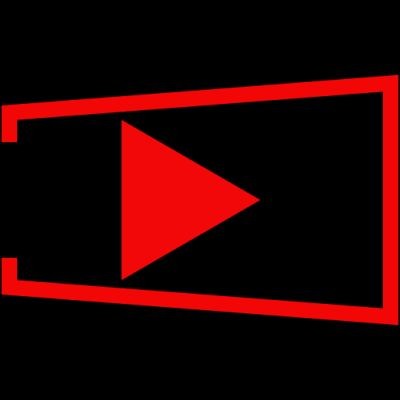Kickstart your musical journey by exploring genres, understanding music theory, and choosing the right instrument. Learn essential tips for setting up your home studio.
08/15/24 • 1,006 Views
Starting your musical and artistic journey? Begin by exploring a variety of genres to find what truly resonates with you. It's also essential to understand the basics of music theory--it'll be your foundation regardless of the style you pursue. Next, choose an instrument that aligns with your genre preference and feels comfortable to play. Don't shy away from seeking advice from experienced musicians, and consider the physical demands and maintenance of your choice. Setting up a suitable space at home with the right equipment, like a reliable computer and a good Digital Audio Workstation, will keep you on track. As you further explore these aspects, you'll discover even more ways to enrich your journey in music and arts.
Key Takeaways
- Explore various musical genres to find your passion and understand different musical styles and instruments.
- Choose an instrument that aligns with your musical taste and is comfortable to play and maintain.
- Set up a basic home studio with essential equipment like a computer, DAW, and good-quality headphones.
- Engage with music technology through apps and online tutorials to enhance your musical skills and creativity.
- Join music communities and consider professional lessons to gain expertise and collaborate with other musicians.
Exploring Musical Genres
Let's explore the world's rich variety of musical genres, delving into everything from the complex structures of classical music to the rhythmic innovations of electronic beats. As you immerse yourself in these captivating domains, you'll encounter the fundamental principles of music theory that underlie all these styles. Understanding music theory isn't just about reading notes; it's about appreciating the diverse ways these notes are used across different genres.
Each genre not only uses different instruments but also involves distinct techniques that define its sound. For instance, while classical music often highlights the violin or piano, electronic music is deeply intertwined with studio equipment like synthesizers and drum machines. This gear is essential, not just as a tool but as an integral part of the creative expression in genres such as electronic music.
Moreover, exploring these genres will introduce you to a world of studio equipment that has evolved significantly over the years. From analog to digital, the development of studio technology has expanded the horizons of what can be achieved musically. Each piece of equipment offers unique features that can enhance your musical palette, whether you're looking to create sweeping orchestral compositions or innovative electronic tracks.
Choosing Your Instrument
- As you consider which instrument to pick, think about how different factors like the instrument's versatility, the music genres you love, and its playability will influence your choice.
- It's essential to match the instrument with your personal style and the roles you aspire to, whether you're aiming to shine solo or blend in a band.
- Don't forget to consult with seasoned musicians or teachers who can offer valuable insights and help steer you toward the best fit for your musical journey.
Instrument Selection Factors
Choosing your instrument involves careful consideration of your musical tastes and the specific sounds that inspire you. When you're starting, understanding instrument selection factors is pivotal. You'll want to think about the physical aspects of each instrument. Its size, weight, and how it's handled can greatly affect your comfort and ability to practice effectively. Can you easily hold and manipulate the instrument? Is it too heavy or awkward for your frame?
Another key consideration is the learning curve associated with different instruments. Some might take longer to master than others, requiring more time and dedication. You'll need to ask yourself how much time you're willing to commit to learning and practicing. Cost is also a significant factor. The initial purchase, ongoing maintenance, necessary accessories, and potential repairs can add up. It's important to budget for these expenses to avoid surprises down the road. Don't forget to factor in the cost of lessons if you're considering professional guidance.
Lastly, don't hesitate to seek advice from music instructors or experienced musicians. They can offer valuable insights into the nuances of different instruments and help you make a choice that aligns with your musical ambitions and lifestyle.
Genre Influence Choices
You'll also need to contemplate how various musical genres influence the choice of your instrument. Delving into different styles like classical, jazz, rock, and electronic will help you discover what truly resonates with you. Each genre tends to favor certain instruments that help define its sound. For instance, if the complex harmonies and grand compositions of classical music captivate you, then the piano might be your calling. Renowned for its versatility, the piano is fundamental in not just classical music but also in jazz, where its range can be used to create both rhythm and melody.
Jazz also leans heavily on instruments like the saxophone and trumpet, but the piano remains a pillar of its rich sound. Should you find yourself drawn to the energetic vibes of rock, the electric guitar could be your instrument of choice. It's central to rock music, known for its powerful chords and electrifying solos that define many iconic rock anthems. Meanwhile, if modern and futuristic sounds entice you, synthesizers could be appealing. Electronic music relies extensively on synthesizers to produce innovative and layered sounds, offering a playground of sonic possibilities. Each choice leads to a unique musical journey, shaped by the genre that moves you the most.
Practical Playability Considerations
Beyond genre preferences, it's crucial to consider the practical playability of your chosen instrument, focusing on aspects like physical demands and instrument maintenance. When you're ready to play an instrument, consider not just how it sounds, but also how it feels. Physical demands vary greatly across different instruments. For instance, playing the guitar requires finger dexterity, while mastering a saxophone demands robust breath control. Think about the size and weight of the instrument in relation to your own body. It's vital to guarantee your comfort during those extended practice sessions.
An instrument that's too large or heavy can lead to strain or discomfort, which in turn might discourage you from practicing. Don't overlook the portability of your instrument, especially if you plan to travel often or perform in various locations. Also, consider the maintenance it requires. Some instruments need frequent tuning, regular cleaning, or occasional repairs, all of which can add to the overall cost and effort involved in playing. Lastly, assess the initial investment and ongoing expenses. Some instruments might be affordable upfront but costly to maintain. Choose wisely to make sure that your musical journey is both enjoyable and sustainable.
Essential Music Equipment
To kickstart your music production journey, you'll need essential equipment like a reliable computer and a high-quality Digital Audio Workstation (DAW). A powerful computer is the backbone of your setup, important for running sophisticated music production software without hitches. Opt for systems that can handle high demands from software like Ableton Live or Logic Pro X, which are among the top DAWs used by professionals. These virtual studios enable you to create, edit, and refine your tracks with incredible precision and flexibility.
Next, invest in a pair of studio monitors, such as the Yamaha HS8 or KRK Rokit G4. Unlike regular speakers, studio monitors provide a flat frequency response, which guarantees that you hear your music exactly as it is, without coloration. This accuracy is essential for making detailed adjustments and achieving professional-grade sound quality. Lastly, don't overlook the importance of a good set of studio-grade headphones. Models like the Audio-Technica ATH-M50x or Beyerdynamic DT 770 Pro offer detailed and accurate audio reproduction, necessary for critical listening and mixing, especially in environments where you can't use monitors.
Establishing a Home Studio
When setting up your home studio, the first step is choosing the right space. It's essential to find a room that minimizes outside noise and has good acoustics for recording. Next, you'll need to invest in essential equipment such as a dependable computer, quality studio monitors, and the right software to get your music production off to a great start.
Choosing the Right Space
Choosing the perfect room for your home studio is necessary, as its size, shape, and ambient noise levels can greatly impact your recordings. You'll want to start by evaluating the room size, which is vital for determining how sound interacts within the space. Ideally, you're looking for a room that's large enough to accommodate your setup comfortably but not so large that sound becomes unmanageable.
Next, consider the shape of the room. Irregular shapes can cause sound waves to bounce around unpredictably, which might lead to uneven sound quality. A rectangular room tends to offer better predictability and easier management of acoustics. Once you've selected a space, think about acoustic treatment. This isn't just about sticking foam on walls; it's about strategically placing these materials to control reflections, balance frequencies, and reduce echo. You might need bass traps in corners or diffusers on flat surfaces, depending on your room's specific requirements.
Essential Studio Equipment
After selecting your studio space, you'll need to equip it with the right tools to bring your musical visions to life. Creating a music studio at home is an exciting step towards producing professional-quality music right from the comfort of your own space.
Here's what you'll need to get started:
- Reliable Computer and Digital Audio Workstation (DAW): Your computer is the heart of your studio, and a powerful DAW acts as the brain. Together, they handle everything from recording to mixing.
- Studio Monitors: Invest in high-quality studio monitors like Yamaha HS8 or KRK Rokit G4. These are essential for accurate sound reproduction, helping you make important adjustments to your tracks.
- Studio-grade Headphones: For those late-night sessions or detailed editing, studio-grade headphones such as Audio-Technica ATH-M50x or Beyerdynamic DT 770 Pro are necessary. They offer the clarity and detail you need to mix confidently.
- Acoustic Treatment: Manage sound reflections and balance frequencies in your room with proper acoustic treatment. This step will greatly improve the audio quality of your recordings.
Each piece of equipment is a building block toward achieving the sound you envision. Embrace the process, and you'll soon see your musical ideas come alive with professional polish and precision.
Engaging With Music Technology
Explore music creation by delving into a variety of music technology tools available at your fingertips. With advancements in technology, it's easier than ever to get started with music production. You can begin by downloading music apps like GarageBand or FL Studio. These platforms serve as powerful Digital Audio Workstations (DAWs) that allow you to create, edit, and produce music right on your computer or mobile device.
As you become more familiar with these tools, you might want to explore more sophisticated software like Pro Tools or Ableton Live. These are industry standards for recording, editing, and mixing music. They offer a range of features that can take your musical creations to the next level. To enhance your understanding of music theory, apps such as Tenuto or Perfect Ear are invaluable. They help you grasp complex musical concepts which can improve your compositions.
Don't forget to use resources like YouTube tutorials and online courses to further expand your knowledge of music technology. These platforms are treasure troves of information where you can learn everything from basic setups to advanced techniques. With consistent practice and exploration, you'll find that music technology opens up a new domain of possibilities for your artistic expression.
Enrolling in Professional Lessons
While experimenting with music technology tools is a great start, you'll also benefit from enrolling in professional music lessons to receive tailored guidance and expert instruction. Taking lessons with professional music teachers can greatly enhance your learning journey. These experts provide structured guidance that's personalized to fit your individual skill level and musical goals.
Here's what you'll gain from taking this step:
- Expertise and Experience: Music teachers bring years of experience and specialized knowledge that you won't find on your own. Their insights can propel you forward.
- Personalized Instruction: Your music education will be tailored to your unique needs, helping you overcome specific challenges and excel at a pace comfortable for you.
- Valuable Feedback: Immediate and constructive feedback from your instructor will help you refine your skills and correct mistakes quickly.
- Supportive Environment: Music education facilities like Music & Arts provide a conducive atmosphere for learning, filled with resources that foster growth and creativity.
Joining Music Communities
Joining music communities can greatly boost your learning and career prospects, offering you invaluable opportunities to collaborate, perform, and grow. When you become part of these vibrant groups, you're not just attending events; you're immersing yourself in a hub of creativity and innovation. Engaging with others who share your passion allows you to learn from their experiences, gain new insights, and push your boundaries in ways you mightn't have considered before.
One effective way to dive deeper into these communities is by joining a band or music group. This isn't just about finding people to play with; it's about entering a collaborative environment where each rehearsal and performance teaches you something new. You'll not only improve your technical skills but also learn the dynamics of working closely with others toward a common artistic goal.
Furthermore, networking with professionals at these gatherings can dramatically elevate your musical journey. These connections can lead to mentorship, open up performance opportunities, and even spark collaborations that could define your career. Participate in jam sessions, attend concerts, and stay active within these circles. Each interaction is a step forward in your evolving music career, enriching your journey with every note you play.
Recording Basics for Beginners
Setting up your first digital audio workstation (DAW) is an essential step in mastering the art of music recording. As a beginner, you might feel overwhelmed, but remember, every expert was once a beginner. Your home studio doesn't need to be fancy; it just needs to be functional. Equip it with a reliable computer, a quality microphone, and headphones to get started.
Here are four key steps that will guide you through the basics of recording:
- Choose Your DAW: Research and select a DAW that suits your musical style and technical comfort. Popular options for beginners include GarageBand and Audacity.
- Set Up Your Equipment: Connect your microphone and headphones to your computer. Make sure your space is quiet to minimize background noise.
- Record Your First Track: Don't worry about perfection. Focus on capturing the essence of your music. Experiment with different sounds and techniques.
- Review and Adjust: Listen to your recording. Identify areas that need improvement and try different settings or positions for your microphone.
Recording is a journey of continuous learning and improvement. Embrace the process, seek feedback from experienced producers, and use online resources to refine your skills. Keep practicing, and you'll see your recordings improve with each session.
Mastering Your Music
Once you've recorded your tracks, mastering them is your next step to guarantee they sound polished and professional on any playback system. As you continue your journey in music, mastering music becomes pivotal to ensure your work competes favorably in the industry. This phase involves refining and enhancing the audio to achieve a balanced and uniform quality across all formats—whether it's streaming, CDs, or vinyl.
Mastering music isn't just about volume. It's about ensuring clarity, depth, and balance. You'll use tools like equalization to adjust frequencies, compression to manage dynamics, and loudness normalization to maintain consistent volume. Tools such as stereo enhancers can also broaden the soundstage, making your track feel more expansive. Your Digital Audio Workstation (DAW) is essential here. It houses all the tools you'll need—EQ plugins, limiters, and more. But mastering isn't just about the right tools; it's about developing an ear for what sounds good across different playback systems.
Career Opportunities in Music
After mastering your music, you might wonder about the next steps to turn your passion into a career. Exploring the various career opportunities in music can be both exciting and challenging. Whether you're drawn to the spotlight or prefer the magic that happens behind the scenes, there's a place for everyone in this vibrant industry.
Here's a look at some of the paths you could take:
- Performing Artist: Imagine the thrill of live audiences reacting to your music—whether you're a solo act, part of a band, or performing at local venues. The connection you forge through performance is irreplaceable.
- Composer: Engage in the world of creating music that tells a story. As a composer, you could be crafting the next unforgettable soundtrack for movies, TV shows, or video games. Your music could evoke emotions and memories for a global audience.
- Music Teacher: Share your knowledge and passion by teaching. Whether it's through private lessons or in educational institutions, you'll be shaping the future generations of musicians.
- Sound Engineer: If you're fascinated by the technical side, this role is for you. Mixing and mastering tracks, you'll make sure that the music sounds perfect, whether it's live or recorded.
Each of these roles offers a unique way to fulfill your musical dreams and make a significant impact with your talent. Keep your passion alive and explore these opportunities!
Conclusion
As you set off on your musical journey, remember that nearly 80% of people report feeling a deeper connection to cultures and communities through music. This isn't just about mastering an instrument or producing songs; it's about enriching your life and connecting with others on a profound level. So, immerse yourself, explore every facet, and let your music not only speak but resonate with others. Your path in music and arts isn't just a hobby; it's a gateway to a more vibrant life.









